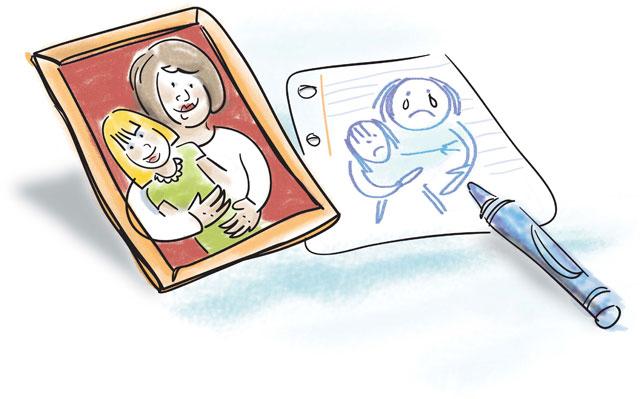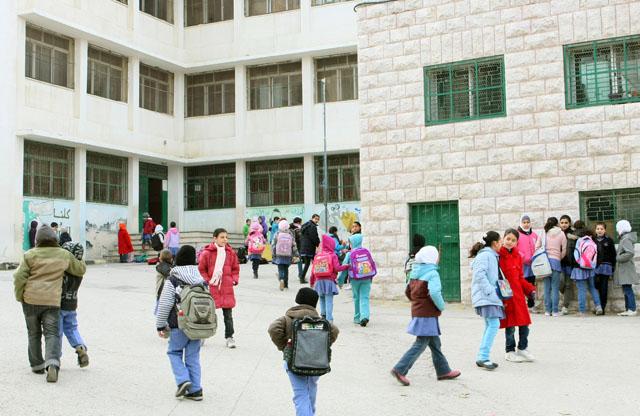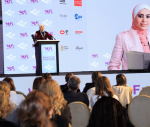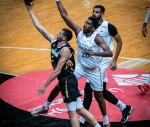You are here
Despite progress in combating violence against children, more is needed — UNICEF
By Khetam Malkawi - Dec 12,2016 - Last updated at Dec 12,2016
AMMAN — Although there are positive signs related to the reduction of violence in the Kingdom’s schools after implementing a nationwide campaign, UNICEF said it is re-evaluating and launching new campaigns for better results.
Maha Homsi, UNICEF’s chief of child protection programme, said 2017 will witness more focus and action related to combating violence against children, and more awareness campaigns will be launched.
‘Ma’An campaign ‘
The “Ma’An” (“Together”) campaign, launched in 2009 by UNICEF and the Ministry of Education, helped reduce verbal violence against children from 44.8 per cent in 2009 to 18.3 per cent in the 2015-2016 scholastic year.
The incidence of physical violence has dropped tremendously from 40.3 per cent in 2009 to 10.8 per cent in 2016.
In 2007, a survey showed that 71 per cent of children were subjected to verbal abuse by teachers and school principals, 70 per cent by their parents/legal guardians, and 38 per cent by adults in the community.
The study also revealed wide acceptance of corporal punishment among families, who saw it as an effective tool for disciplining children.
However, the use of positive disciplinary alternatives still needs to be worked on, since its use has dropped from 45.8 in 2012-2013 to 43.2 per cent in 2015-2016.
To ensure that violence drops on a national level and to expand the mechanisms that address the issue, UNICEF is scheduled to develop a nationwide campaign after preparing a strategy and a plan of action that engages the media as well, according to Homsi.
“We will be launching a virtual Makani [my space] initiative for journalists; where we can post stories and provide technical materials”, to help in the awareness campaigns related to combating violence against children, Homsi told The Jordan Times in a recent interview.
She explained that there will be expanded media attention to violence against children in 2017.
Preachers and religious leaders will be also part of the campaign, said Homsi, adding that the UN agency previously trained 1,800 preachers on early childhood development and violence against children.
“So we want to reactivate their role and provide them with more technical material... and training so that they can be our voice in promoting positive disciplinary practices at home and other places,” the UNICEF official stressed.
In addition, she noted the Ma’An campaign will be rebranded, giving it new life and expanding it to encompass tackling peer-to-peer violence as “we were focusing on teacher-to-student violence”.
Now, Homsi added, UNICEF and partners need to look at the whole school dynamic.
In line with the UN agency’s efforts, a pilot project called Tarbieh (education) was implemented recently with a focus on positive disciplinary practices and reinforcing the positive social behaviours of students.
The project, implemented in 56 schools, is an incentive system where a school is divided into four houses, and each house competes to get a number of points only based on social behaviour. At the end of the school year, a winning house is announced based on the tallied points.
One of the challenges in addressing violence in schools is related to overcrowding.
Some classrooms at refugee camps have 60 to 70 students, said Homsi, “and this is a tough environment for any teacher”.
Thus, the agency is trying to develop specific strategies to tackle violence at the Zaatari and Azraq camp schools for Syrian refugees.
Article 62 of Penal Code
Meanwhile, efforts with partners are still ongoing to lobby for amending or abolishing Article 62 of the Penal Code, which stipulates that parents can punish their children for disciplinary purposes in accordance with “general norms”.
According to Homsi, UNICEF has a project with the National Council for Family Affairs to advocate for the abolishment of the provision itself.
“We have commissioned a judge to review the article and the implications if [it os] removed from the legislation,” the UNICEF official said, adding that supporters are concerned that children might take their parents to court in the absence of such a provision.
“We have to demonstrate that, even if this article is to be removed; this practice will not be accepted,” Homsi stressed, adding that “we want to give a message to parents that they are also not allowed to hit their children based on our religious teachings”.
In addition, she explained that scientific research proves the negative impact of violence on children, especially from an early age. “It shapes their personality differently and leaves marks way beyond childhood.”
Thus, “we need to use the scientific argument and Islamic teachings” to show the harm of violence against children, Homsi added.
Related Articles
AMMAN — In an ambitious new programme, UNICEF Jordan seeks to engage journalists in addressing the issue of violence against children in a s
World Day for Prevention of Child Abuse arrived this year with a packed agenda to improve children’s rights in Jordan.
The shortage of counsellors at public schools prevents students who seek help from getting the needed attention, Education Ministry employees said on Thursday.


















